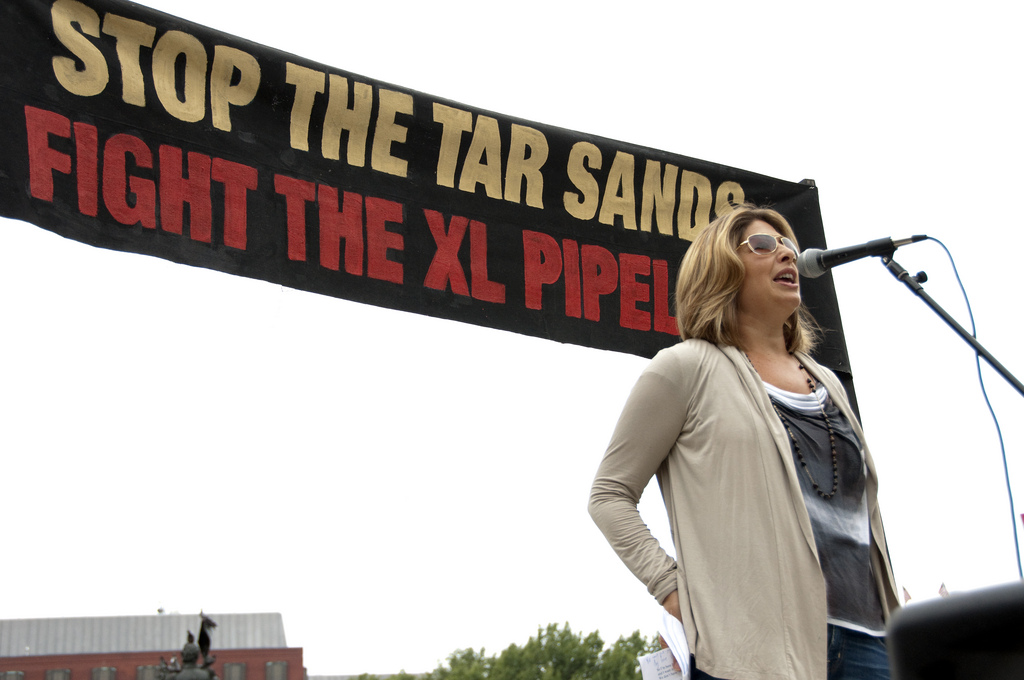Like this article? rabble is reader-supported journalism. Chip in to keep stories like these coming.
In the days since the Leap Manifesto Resolution passed at the NDP convention in Edmonton, there has been a lot of talk about who precisely is most harmed by the fracturing of the NDP along pro- and anti-Leap lines. I want to argue that we are all hurt by this moment.
I write as a born and raised Albertan, a member of the NDP, and a woman who campaigned for Rachel Notley. I have read the Leap manifesto and support much of what it stands for. With many progressives across the country, I share a belief in the need for a national conversation on climate change and for radical proposals that help move us away from extractive oil and gas development and toward renewable energy.
I also believe that the rollout of the Leap Manifesto at the NDP convention and the ensuing debate has harmed efforts to build solidarity among progressives across the country. The Leap Manifesto is deeply problematic. It fails to attend to the different regional, political, economic, and social realities of communities across Canada.
A question of process
As a long-time community organizer, I have learned that the best way to have difficult conversations about controversial issues is not by setting out the terms of the debate before people get to the table. This is especially true in the middle of a devastating recession 11 months into the precarious tenure of Alberta’s first non-Conservative government in 44 years.
I am not saying that now is not the time to have that conversation; I am saying this is the wrong way to have it. It is a question of process. It is a question of how we build a social movement in a way that respects and honours the complexity of people’s lives. While Alberta is currently the focus of this debate, this question is applicable to all regions in Canada where people’s livelihoods are tied to extractive industries.
The Manifesto’s call for no new infrastructure development ignores the political, economic and social realities in Alberta. I may question pipelines as much as the next progressive, but the way to build a broad base of support for the climate justice movement is not to start with pipelines. To do so kills the possibility of debate over these issues before they have begun. At a basic level, it asks people to come to the table with a gun to their head. How can communities become energy democracies if they are not full participants in the decisions that shape their lives?
The Leap manifesto fails when it neglects to take seriously the process required to have authentic, honest, and transformational conversations that open the door to the radical kinds of change it espouses. Placing the manifesto into the political machine of the NDP both opens the door for the opposition to bash the NDP in Alberta, but also further alienates the climate justice movement from those who work in the energy sector, as well as the families and communities of those workers. It is precisely these communities that we need at the table for conversations about energy democracy. It is precisely these communities that the Manifesto disavows.
The NDP did not win the election in Alberta
To understand why some Alberta progressives were apoplectic following the passage of the Leap Manifesto Resolution, it is helpful to understand the context of the NDP in Alberta.
The national perception of an “orange revolution” in Alberta following the NDP victory last May is inaccurate. The NDP did not win the election — the Alberta Progressive Conservatives lost it. It took 44 years, but the PCs had finally lost the political support needed to form government.
The province remains a very conservative place and Rachel Notley has been carefully nurturing a very fragile social contract with Albertans from the moment she was elected.
Yet, Notley’s election put on the table things that had been politically impossible just months before: a climate change strategy, a tax on carbon, an accelerated phase-out of coal. That none of these go far enough is a political reality that many of us are concerned about. The question is how we effectively build public support for the more radical change we are all seeking.
Community organizing requires careful listening and a willingness to leave empty-handed. It requires time. I understand that this is time the climate justice movement feels it does not have. I would suggest, however, that if we want radical change, that change will have to come from the grassroots, it will have be to led by communities, and it will have to engage the actual people who work in the sectors that need to be transformed.
One of the lines I learned working in community was the following: “Alone we go fast, together we go far.” As a progressive movement we need to find ways of bringing people together so that we can work toward the social change so many of us hope for and believe in.
Bronwyn Bragg is a community-based researcher whose hometown is Calgary, Alberta. Tweets @BronwynBragg.
Like this article? rabble is reader-supported journalism. Chip in to keep stories like these coming.
Image: Flickr/tarsandsaction (Credit: Bora Chung)



